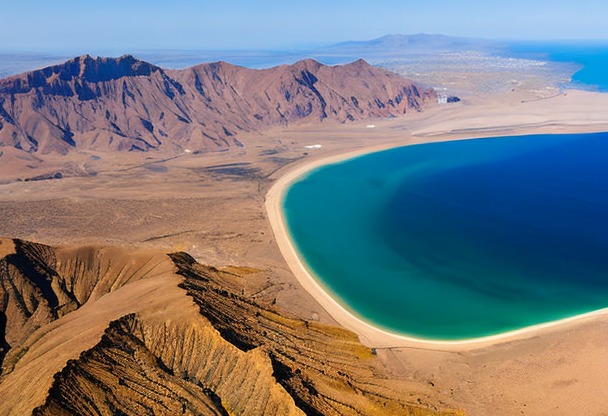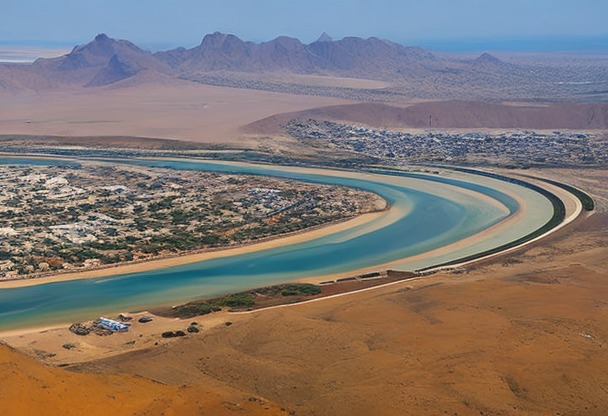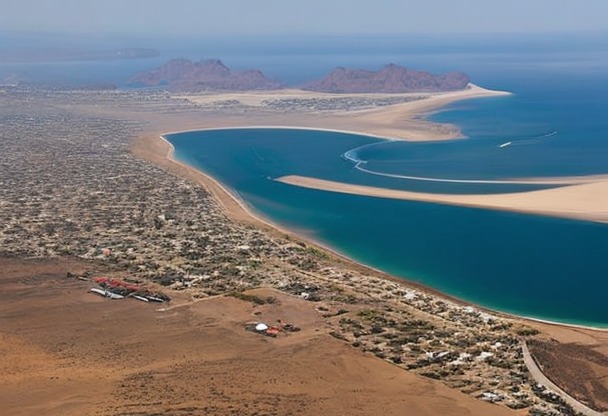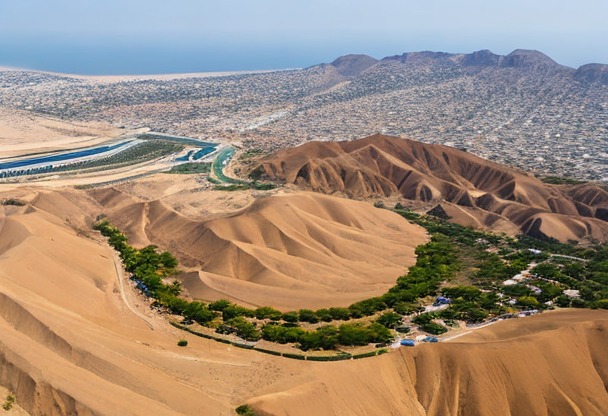WHEN TO TRAVEL TO Djibouti
Choosing the right period for your trip to Djibouti can make all the difference. It's important to consider climatic elements, seasonal events and busy tourist periods to maximize your travel experience.

Location
Climate
Djibouti's seasons: between heat and rain
Djibouti's climate is mainly desert, with high temperatures all year round. However, there are two main seasons:- The dry season which runs from November to April. Average temperatures range from 25°C to 30°C, with a peak in March and April when temperatures can reach 35°C.
- The rainy season which runs from May to October, with moderate rainfall and slightly lower temperatures, fluctuating between 20°C and 25°C.
Best time to visit Djibouti
To take full advantage of Djibouti's beauty and the activities and events it has to offer, the ideal time to visit the country is between November and February. During this period, temperatures are cooler and more pleasant, making travel and sightseeing more comfortable. It's also the best time to observe the local wildlife, especially the whale sharks that feed in the plankton-rich waters of the Gulf of Tadjourah.Major cultural events not to be missed
Djibouti's festive calendar features several major cultural events throughout the year:- Independence Daycelebrated every year on June 27, marks Djibouti's independence from France in 1977. Festivities include parades, concerts and fireworks.
- Djibouti International Poetry Festival is an annual event held in April that brings together poets from all over the world for public readings, workshops and performances.
- Muslim religious holidays such as Eid el-Fitr and Eid al-Adha are celebrated with fervor by the majority of the population. They provide an opportunity to share festive meals with family and friends.
Public holidays and low and high season periods
In addition to religious holidays, Djibouti also celebrates several national holidays, such as New Year's Day (January 1), Labor Day (May 1) and National Day (June 27). On these days, most shops and public services are closed, but tourist sites generally remain accessible. Regarding the low and high season periods, it's important to note that :- Low season is generally between May and October, corresponding to the rainy season. Prices for accommodation and tourist activities are often lower during this period, but some attractions may be less accessible due to weather conditions.
- High season extends from November to April, coinciding with the dry season. Prices tend to rise during this period, but crowds are generally moderate compared to other tourist destinations.
Djibouti's must-see regions
Djibouti offers a wide variety of landscapes and sites to explore. Here are a few must-see regions:- The city of Djiboutithe country's capital, is a fascinating blend of African, Arab and French influences. Be sure to visit the central market, the historic district and the port.
- Lake Assallocated in the Grand Bara region, is the lowest point in Africa and the third deepest salt lake in the world. Its turquoise waters and lunar landscapes are breathtaking.
- Day Forest National Park is home to one of the region's last remaining tropical dry forests and offers the opportunity to observe endemic flora and fauna.
- The Gulf of Tadjourah is a paradise for scuba divers and snorkelers, thanks to its preserved coral reefs and exceptional marine fauna, including the famous whale sharks.
Insurance

Your credit card does not cover you in all situations, that is whyIt is essential to take out insurance before you leave to avoid any unpleasant surprises. If you need to see a doctor or be hospitalized, in some countries, medical costs are very high and you will then find yourself having to pay several thousand euros.
Our partner Chapka Insurance proposes the contract CAP ASSISTANCE 24/24 with many essential guarantees.


Flights

Your flight has been cancelled or delayed ?
You may be eligible for a compensation of up to €600 ! For this, lawyers are responsible for handling your claim with the airline and are only paid when the reimbursement is effective.
In conclusion, no financial risk for you, only advantages!
International migration in Djibouti: general data
According to United Nations data, the stock of international migrants in Djibouti was around 49,000 in 2019, or almost 5 % of the country's total population. This proportion places Djibouti among the African countries with the highest representativeness of international migrants relative to their population. The main countries of origin of migrants in Djibouti are neighboring countries such as Ethiopia, Somalia and Eritrea. These migratory flows are mainly linked to economic and political factors, including the search for jobs, access to social services and escape from conflict or persecution.The different types of visa required in Djibouti
There are several categories of visa to enter Djibouti, depending on the length of stay and the purpose of the visit. Here are the main visa categories and their respective requirements:- Tourist Visa Djibouti visa: This visa is intended for foreign visitors wishing to travel to Djibouti for vacations or family visits. It is generally valid for 30 days and can be extended on site.
- Transit visa This visa is granted to international travelers who stop over in Djibouti for a short period (less than 24 hours) before continuing their journey to another destination. It does not give the right to work or settle in the country.
- Business Visa Djibouti visa: This visa is issued to people visiting Djibouti to take part in meetings, conferences or professional training courses. The duration of validity varies according to the specific needs of the applicant, ranging from a few days to several months.
- Work visa This visa is intended for foreign workers employed by Djiboutian companies or international organizations based in the country. It is generally valid for one year and can be renewed.
- Student visa Non-Djiboutian students wishing to study at a higher education institution in Djibouti can apply for a student visa. This visa is generally valid for the duration of the studies, and can be extended if necessary.
International tourism in Djibouti: key figures
Djibouti has seen a growth in the number of international visitors in recent years. In 2017, the country welcomed around 110,000 touristsThis represents an increase of almost 37 % compared with 2016. The main reasons why international tourists visit Djibouti are :- Discover unique natural landscapes such as Lake Assal, Lake Abbé and the Day rainforests;
- Water activities such as scuba diving, sport fishing and sailing;
- Observe local wildlife, including migratory birds and whale sharks;
- Participation in cultural and sporting events, such as the Djibouti marathon or traditional festivals organized by the country's various ethnic communities.
Challenges and opportunities in the tourism sector
Despite the rise in the number of international visitors, Djibouti's tourism sector faces a number of challenges. These include- Lack of tourist infrastructure, particularly in terms of accommodation and transport;
- Regional competition, with neighbouring destinations such asEthiopia, l'Egypt or the Kenya which attract large numbers of international travellers;
- Concerns about the health and safety of travelers, particularly in certain border areas where armed conflicts are underway.


